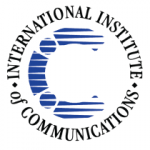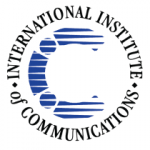

It would be difficult to identify a more diverse region of economies than the 10 member States of ASEAN. The comparative lack of integration across ASEAN at least reflects a reality that avoids some of the contemporary problems the EU faces, but on the other hand the lack of regulatory harmony across ASEAN member States drives up the cost of doing business. Yet regional integration is clearly the way forward. The economies of scale that arise from common markets or markets with low tariff barriers allow the countries involved to compete in global markets.


The ASEAN Free Trade Association (AFTA) in 1993 was the first concrete step in this direction. Widening regional relations since 1997 through ASEAN Plus 3 (China, Japan and South Korea) was another step, this time to open the potential for significant intra-regional as well as inter-regional growth in trade and investment and communications. The region has most recently seen a web of bilateral trade agreements (BTAs) and the Trans Pacific Partnership (TPP) negotiations, most of which have an ICT component, including IPR issues. So integration one way or another, inter-regional, intra-regional or global, is now firmly on the agenda. But currently trade agreements are heavily weighted towards goods. The Masterplan needs to address trade-in-services and market entry issues if it is to have an impact.
Integration involves both hard and soft elements. The harmonization of laws and regulations are among the soft infrastructures that encourage trade and investment; integrated transport and communications networks are among the key hard infrastructures that precursor economic development. The ASEAN ICT Masterplan 2015 [ASEAN ICT Masterplan 2015 (AIM)] should be judged in these terms: does it offer a realistic and achievable roadmap? Does it offer a realistic balance between public and private initiatives? Does it address the right priority issues? What new opportunities does it open up for business and market development? What are the implications for trade and investment with the rest of the world if the Masterplan can be achieved? And what’s real and what’s aspirational?
Tuesday 3 April 2012 15:00-17:30
Venue: Microsoft Singapore
To request an invitation, please email info[at]trpc.biz/old_archive
SPEAKERS
- Dan Reed, Microsoft’s Corporate Vice President for Technology Strategy and Policy and Extreme Computing
- Bob Fox, Director of Foxcom, Chair of EuroCham ICT Committee and Chair of the ICT group Joint Foreign Chambers of Commerce in Thailand (absent with apologies; presented by John Ure)
- John Ure and Michael Khoo, TRPC
MODERATORS
- John Galligan, Regional Director, Government Relations, Microsoft